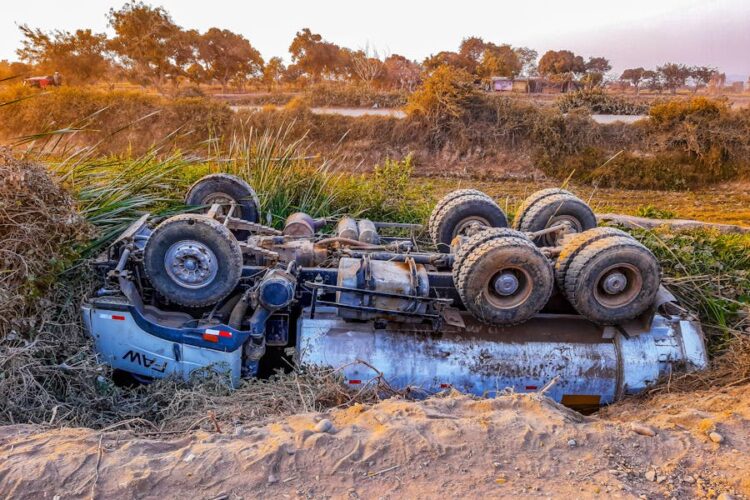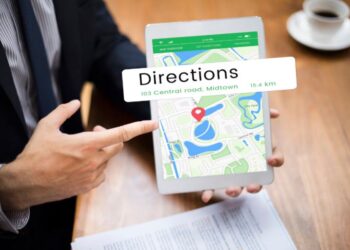Truck accidents are among the most devastating types of road incidents due to the size and weight of commercial trucks. Victims often face severe injuries, emotional distress, and financial strain. When such accidents occur, understanding how to proceed following a truck accident case is vital to protect your rights and secure the compensation you deserve.
This comprehensive guide explores the immediate actions to take, the legal complexities involved, and steps to maximize recovery. Whether you’re dealing with insurance companies, seeking medical care, or preparing for a legal battle, this resource offers a roadmap to effectively navigate the challenging aftermath of a truck accident. Taking informed and strategic steps can make a significant difference in the outcome of your case, and we’re here to help you every step of the way.
Immediate Actions to Take After a Truck Accident
When a truck accident happens, chaos can ensue. Your initial steps can significantly impact your safety, health, and legal position. Here’s what to do:
Prioritize Safety and Call Emergency Services: The first and foremost priority is ensuring safety. If the accident is on a busy road, try to move yourself and any passengers to a secure location away from traffic. However, avoid moving your vehicle unless it is necessary for safety or directed by law enforcement. Call 911 immediately to report the accident. Emergency responders should assess the scene and provide medical aid even if the injuries seem minor.
If your truck is disabled or creating a hazard on the road, contacting a heavy-duty towing company is essential to clear the scene safely and prevent further accidents. These specialized towing services have the equipment and expertise to handle large vehicles efficiently, reducing risks and ensuring compliance with road safety regulations.
Having law enforcement at the scene ensures a police report is created, which serves as a crucial document for insurance claims and legal proceedings. Police officers will record details like road conditions, potential violations, and witness statements, all of which can substantiate your case.
Gather and Preserve Evidence: Documenting the accident scene is essential for building a strong claim. Take detailed photos of the vehicles involved, visible damages, skid marks, traffic signs, and any other relevant details. Record videos capturing the overall context of the accident site. Note the time, weather, and road conditions, as these factors could be significant in proving fault.
Collect the truck driver’s information, including their name, contact details, license number, and insurance information. If there are witnesses, ask for their contact information and request a brief statement. Their accounts can provide impartial evidence supporting your claims.
Seek Immediate Medical Attention: Even if you feel fine, seek medical attention immediately after the accident. Some injuries, like internal trauma or whiplash, may not present symptoms right away. A doctor’s evaluation ensures your health is protected and creates a medical record linking your injuries to the accident.
Notify Your Insurance Provider: Promptly inform your insurance company about the accident. Provide factual details and avoid speculating about fault or admitting responsibility. Insurance adjusters will use any statements you make against you, so it’s best to stick to the facts and consult with a lawyer before providing detailed statements.
Legal Considerations After a Truck Accident
Dealing with the legal aftermath of a truck accident can be overwhelming, as multiple parties may be involved. Understanding the legal aspects is critical for building a strong case and securing fair compensation.
Identifying Liable Parties
In truck accidents, liability often extends beyond the driver. The trucking company, vehicle manufacturer, cargo loaders, or even maintenance providers could share responsibility. Determining fault requires a thorough investigation, which an experienced attorney best handles.
Importance of a Police Report
The police report plays a vital role in your legal case. It serves as an official account of the accident and includes details about the scene, potential violations, and witness statements. Insurance companies and courts often rely on this document when determining fault.
Preserving Evidence
Evidence is the backbone of any successful truck accident case. From photographs of the scene and damage to driver logs and maintenance records, every detail matters. For a complete breakdown of what to collect and how it strengthens your case, check out this essential guide. Taking these steps early on can be the difference between a weak claim and a solid case.
Building a Strong Case
Building a strong case after a truck accident is crucial to ensure fair compensation. Here are the essential steps to strengthen your claim.
Proving Negligence and Liability
Demonstrating negligence is central to any truck accident case. You need to prove that the at-fault party failed in their duty of care, directly causing the accident. Liability can involve multiple entities, including the driver, trucking company, vehicle manufacturer, or cargo loaders. For example, a trucking company might be liable for inadequate training or pushing drivers to exceed legal hours. Identifying all responsible parties is essential to maximize your compensation.
Gathering Evidence
Evidence forms the backbone of a successful claim. Police reports, accident scene photos, medical records, and witness statements are fundamental. In truck accident cases, obtaining driver logs, electronic logging device (ELD) data, and maintenance records is vital. These documents can reveal regulatory violations or negligence, such as exceeding driving hours or failing to maintain the vehicle. Preserving and presenting this evidence strengthens your case significantly.
Engaging Expert Witnesses
Expert witnesses provide technical insights that can bolster your claim. Accident reconstruction experts analyze physical evidence to determine fault, while medical experts explain the extent and impact of your injuries. Trucking industry specialists can highlight safety violations or regulatory breaches. Their testimony adds credibility and clarity, especially in complex cases.
Calculating Damages
Accurately assessing your damages is vital for fair compensation. This includes medical bills, lost wages, and long-term treatment costs. Non-economic damages, such as pain, suffering, or emotional distress, are also considered. Your attorney ensures that all these aspects are included so you don’t settle for less than you deserve.
Dealing with Insurance Companies
Insurance companies often try to minimize payouts. Avoid providing recorded statements without consulting your attorney, as adjusters may use your words against you. A skilled lawyer negotiates, ensuring your evidence and losses are presented compellingly. This approach helps secure a settlement that reflects the true impact of the accident.
Preparing for Trial if Necessary
While most cases are settled out of court, some require litigation. If negotiations fail, your attorney will represent you in court, using the evidence and expert testimony to build a strong argument. Although trials can be time-consuming, they may result in higher compensation if successful.
Pursuing Compensation and Recovery
Securing compensation after a truck accident often requires navigating negotiations, insurance claims, and potential court proceedings.
- Medical Expenses: Medical costs are often the most significant component of a compensation claim. This includes emergency treatment, surgeries, medications, physical therapy, and future medical needs. Ensure all receipts, bills, and records are preserved to substantiate your claim.
- Lost Wages and Future Earnings: You can claim lost wages if your injuries prevent you from working. For severe injuries leading to long-term disability, your lawyer will calculate the loss of future earnings and include it in the claim.
- Pain and Suffering: Truck accidents often cause emotional distress and a diminished quality of life. Compensation for non-economic damages reflects the psychological impact and challenges of the accident.
- Property Damage: Reimbursement for vehicle repairs or replacement and any damaged personal items is part of the compensation claim.
Warping Up
Navigating the aftermath of a truck accident can be overwhelming, but taking informed and strategic steps ensures your rights are protected. From securing the accident scene to pursuing legal action, understanding how to proceed following a truck accident case equips you to handle the situation effectively. With the help of experienced professionals and a focus on recovery, you can achieve justice and fair compensation.
FAQs
What should I do immediately after a truck accident?
Prioritize safety, call emergency services, document the scene, and gather evidence like photos and witness details.
Why should I hire a truck accident lawyer?
Lawyers specialize in proving liability, negotiating with insurance companies, and maximizing compensation for losses.
Can I file a claim if I am partially at fault?
Yes, in many states, comparative negligence laws allow you to recover damages proportionate to your level of fault.
What damages can I claim in a truck accident case?
You can claim medical expenses, lost wages, pain and suffering, property damage, and emotional distress.
How long does it take to resolve a truck accident case?
The timeline varies depending on the case’s complexity, but cases involving significant injuries or disputes may take months to years.










